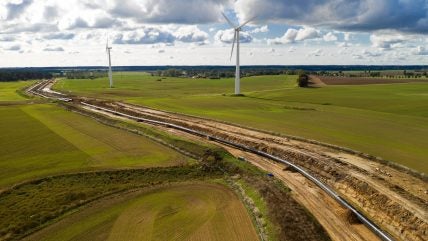
The EU has indicated that it does not see a need to extend the current agreement facilitating the transit of Russian gas to Europe through Ukraine, reported Reuters.
This development comes as the contract is scheduled to expire at the end of the year.
EU Energy Commissioner Kadri Simson stated that the bloc’s analysis has shown that countries relying on this route, including Austria, Italy and Slovakia, should be able to secure alternative sources of supply.
In an EU Parliament committee meeting, Simson said: “We have no interest to prolong the trilateral gas transit agreement with Russia, which will expire by the end of this year.
“Based on our preliminary analytics, there are alternative solutions to supply these countries who still receive some gas through the Ukrainian route.”
Europe has been actively seeking to reduce its reliance on Russian gas imports, especially after Russia cut gas deliveries following its invasion of Ukraine in February 2022.
How well do you really know your competitors?
Access the most comprehensive Company Profiles on the market, powered by GlobalData. Save hours of research. Gain competitive edge.

Thank you!
Your download email will arrive shortly
Not ready to buy yet? Download a free sample
We are confident about the unique quality of our Company Profiles. However, we want you to make the most beneficial decision for your business, so we offer a free sample that you can download by submitting the below form
By GlobalDataDespite concerns, it is believed that the termination of the Ukraine transit deal may only cause a minor increase in European gas prices and is unlikely to threaten the continent’s energy security, reported the news agency.
EU member states have made significant investments in liquefied natural gas (LNG) and renewable energy to reduce their dependency on Russian gas.
Additionally, a notable decline in gas demand, attributed in part to reduced industrial activity, has eased the transition away from Russian energy.
The five-year pipeline transit agreement between Moscow and Kyiv allowed Russia to export gas to Europe via Ukraine’s pipeline network, providing Ukraine with transit fees.
Historically, Ukraine was the primary conduit for Russian gas exports to Europe, but the flow has lessened with the construction of alternative pipelines such as the damaged and currently inactive Nord Stream pipeline through the Baltic Sea to Germany and the TurkStream pipeline across the Black Sea to Turkey.
Ukraine has expressed its unwillingness to negotiate with Russia on extending the transit agreement.
Kremlin representative Dmitry Peskov said last month that Russia would seek other export routes for its gas should the deal with Ukraine not be renewed.







